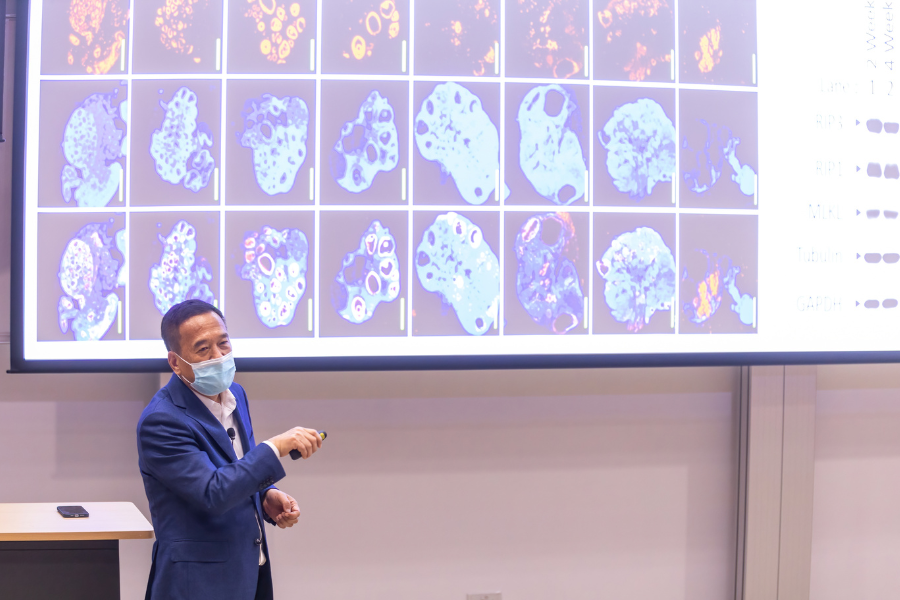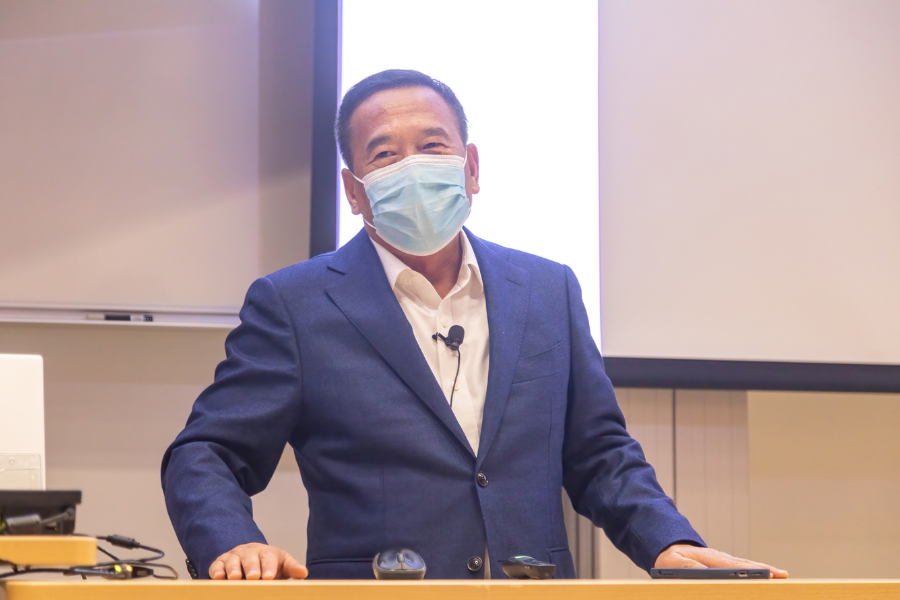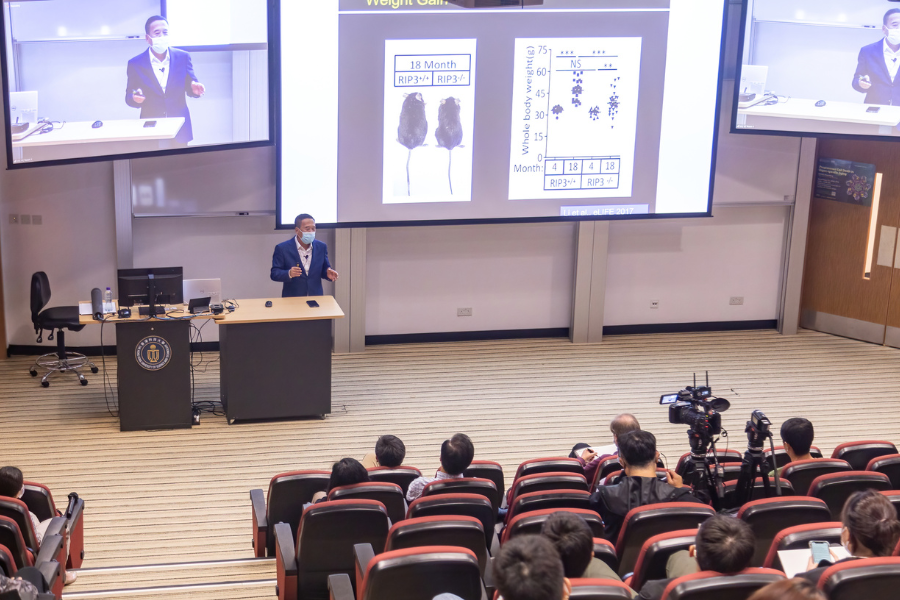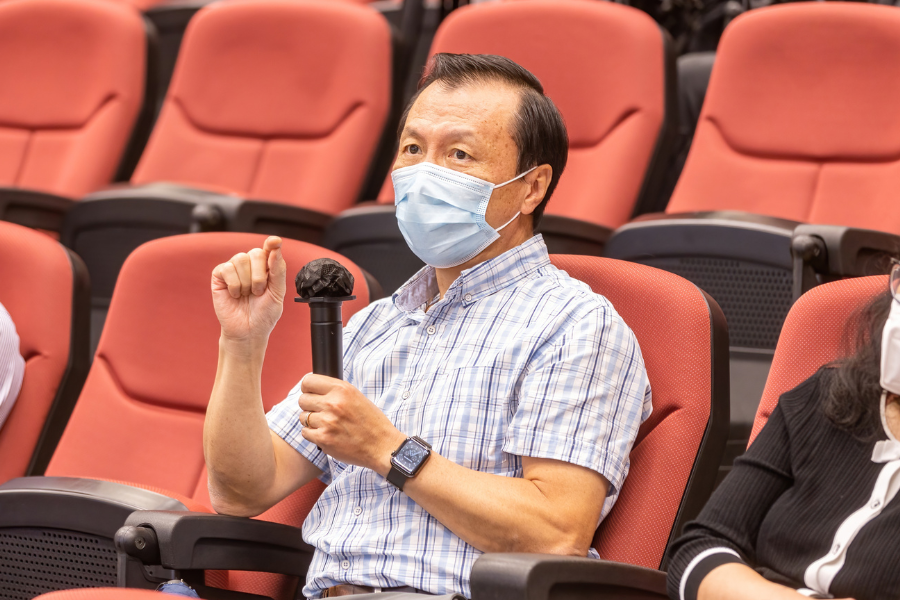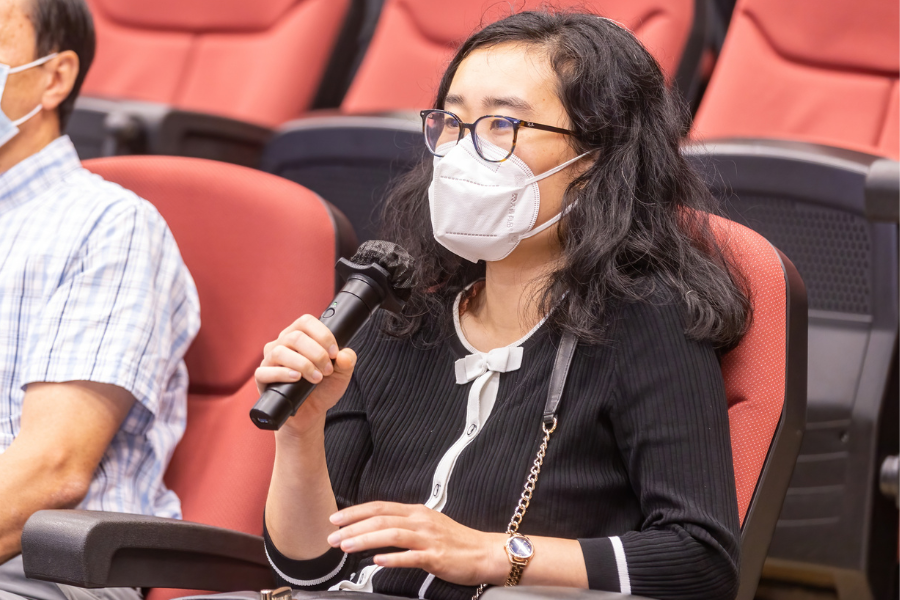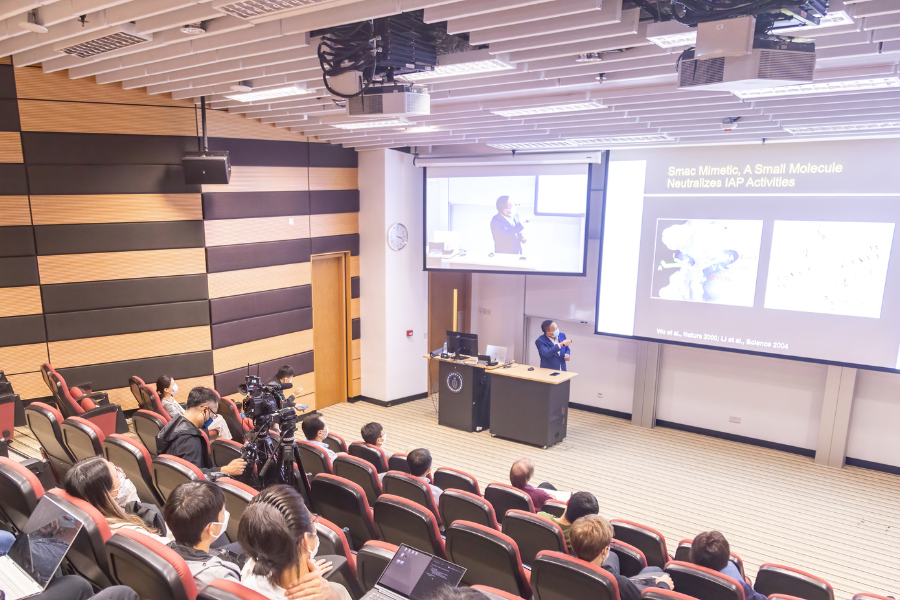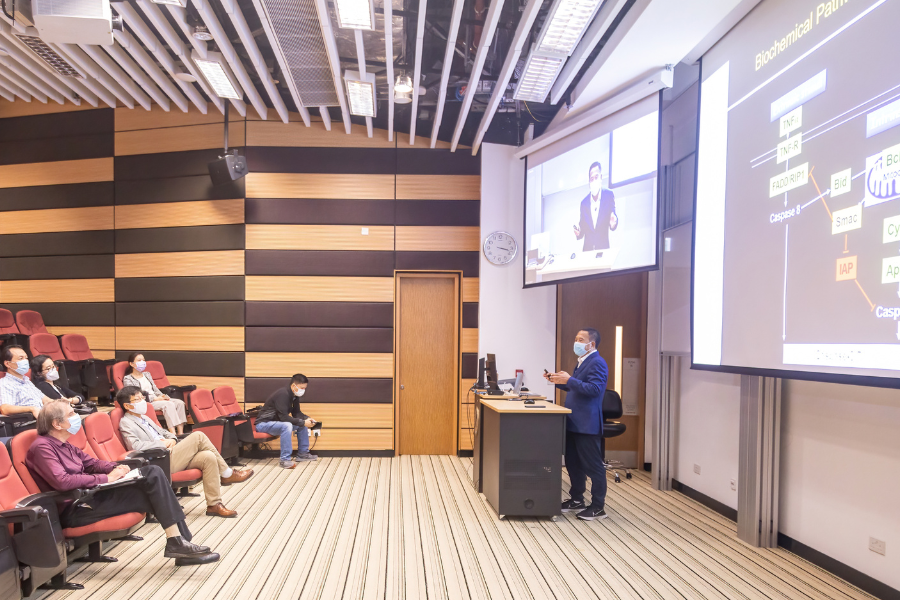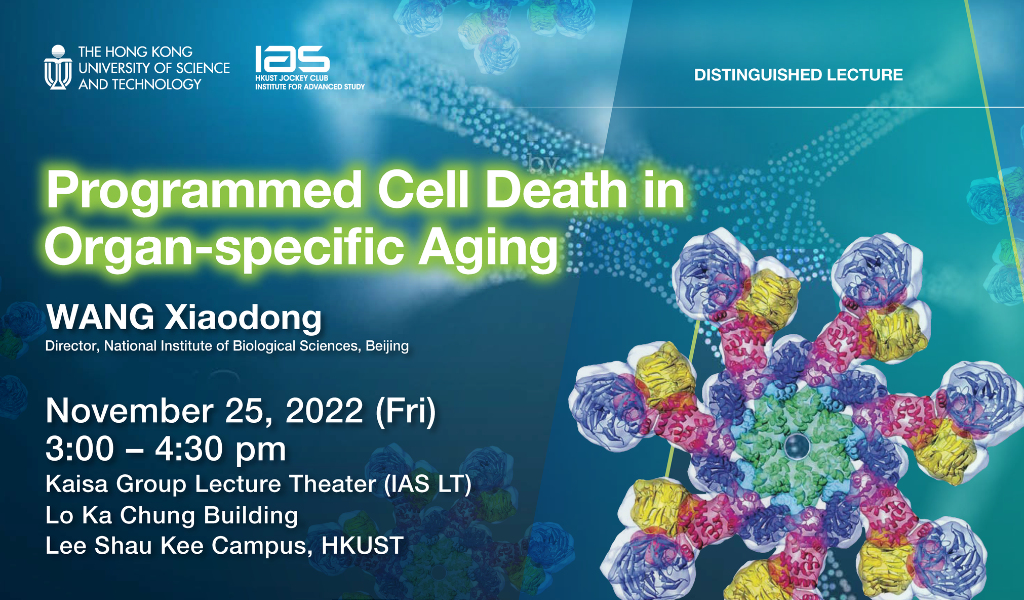Programmed Cell Death in Organ-specific Aging
Mode of Event
-
In-person: Pre-registration is closed. Walk-ins are welcome, subject to seating availability.
-
Zoom (Registration is NOT required): https://hkust.zoom.us/j/99764287290 (Meeting ID: 997 6428 7290/ Passcode: DL20221125)
Abstract
Specific loss of cell vitality during animal development and adult life is an important part of normal animal physiology, and defects in such a process cause many human diseases. These forms of cell death are executed by specific biochemical programs within the dying cell, thus termed regulated cell death. The speaker and his research group have been studying regulated cell death for the last twenty-five years aiming at three related goals. The first is to delineate the biochemical reactions of cell death programs; second, to understand the physiological and pathological functions of programmed cell death; and finally, to derive therapeutic strategies based on the knowledge of programmed cell death to treat human diseases and in particular, cancer and age-associated organ deteriorations.
One of the cell death programs the speaker and his research group delineated is called necroptosis. This form of cell death is caused by the activation of receptors of tumor necrosis factor family of cytokines or toll-like receptor ligands. The core components are a pair of receptor-interacting kinases, RIP1 and RIP3 and the substrate of RIP3, a pseudokinase named MLKL. Additionally, they found a member of casein kinase (CSNK) 1 family, CSNK1G2, negatively regulates the activity of RIP3 in testis. Genetic knockout RIP3 or MLKL allows the knockout male mice to retain “youthful” morphology of their reproductive system and function into advanced age, while those of age-matched wild type mice deteriorate. Conversely, genetic knockout CSNK1G2 accelerates the aging of male reproductive system. The RIP3 phosphorylation of MLKL, the activation marker of necroptosis, is detected in the testes of old mice and men but not in young mice and young men, indicating that the pathway is evolutionarily conserved. This genetically programmed organ-specific aging pathway can be blocked by feeding mice with RIP1 kinase inhibitor-containing diet, thus opening doors to pharmacological intervention of aging. The speaker will discuss in detail the biochemical and physiological dissection of this organ-specific aging program.
About the Speaker
Prof. WANG Xiaodong is the Director and Investigator of the National Institute of Biological Sciences, Beijing. He is also the University Chair Professor at Tsinghua University and the Director of Tsinghua Institute of Multidisciplinary Biomedical Research.
Prof. Wang received his B.S. in Biology from Beijing Normal University in 1984 and his Ph.D. in Biochemistry from the University of Texas Southwestern Medical Center at Dallas, USA in 1991. After his post-doctoral training in the same school, he started his independent career at the Department of Biochemistry, Emory University School of Medicine in 1995. Before he returned to Beijing to take up his current position in 2010, he was a Howard Hughes Medical Institute Investigator and held the position of the George L. MacGregor Distinguished Chair Professor in Biomedical Sciences at the University of Texas Southwestern Medical Center. He was elected as a member of the U.S. National Academy of Science, a foreign associate member of the Chinese Academy of Sciences, and of the European Molecular Biology Organization.
Prof. Wang's research centers on the biochemical understanding of programmed cell death in mammalian cells. He and his research group discovered the role of cytochrome c in apoptosis that established the signaling function of mitochondria. They also identified RIP3 kinase and its substrate MLKL as the core components of a pathway controlling and executing necroptosis.
Prof. Wang was the recipient of the Outstanding Achievement Award from the American Association of Cancer Research, the Hackerman Award from the Welch Foundation, the Paul Marks Prize from the Memorial Sloan-Kettering Cancer Center, the Eli Lilly Award from the American Chemical Society, the Schering-Plough Award from the American Society of Biochemistry and Molecular Biology, the Shaw Prize in Life Science and Medicine, as well as the NAS Award in Molecular Biology and the Richard Lounsbery Award from the U.S. National Academy of Sciences.
Campus Access Control and Disease Prevention Measures
-
To enter the campus for this event, non-HKUST members who have signed up as Friends of HKUST via the event registration form will be registered as “visitors” by the event organizer to the University for their easy access thru the campus gates.
-
Except for exempted persons, all visitors entering the venue must comply with the ‘Vaccine Pass’ arrangements and other requirements under Cap.599F (See https://www.coronavirus.gov.hk/pdf/vp_ac.pdf)
-
Audience will be required to take a temperature check at the entrance of the venue. Those with fever and/or upper respiratory tract infection (URTI) symptoms will be denied for entry.
-
Audience must properly wear a mask covering their nose and mouth at all times in the venue.
-
Audience should follow seating instruction imposed by onsite staff as special seating arrangements and capacity control will be implemented.

